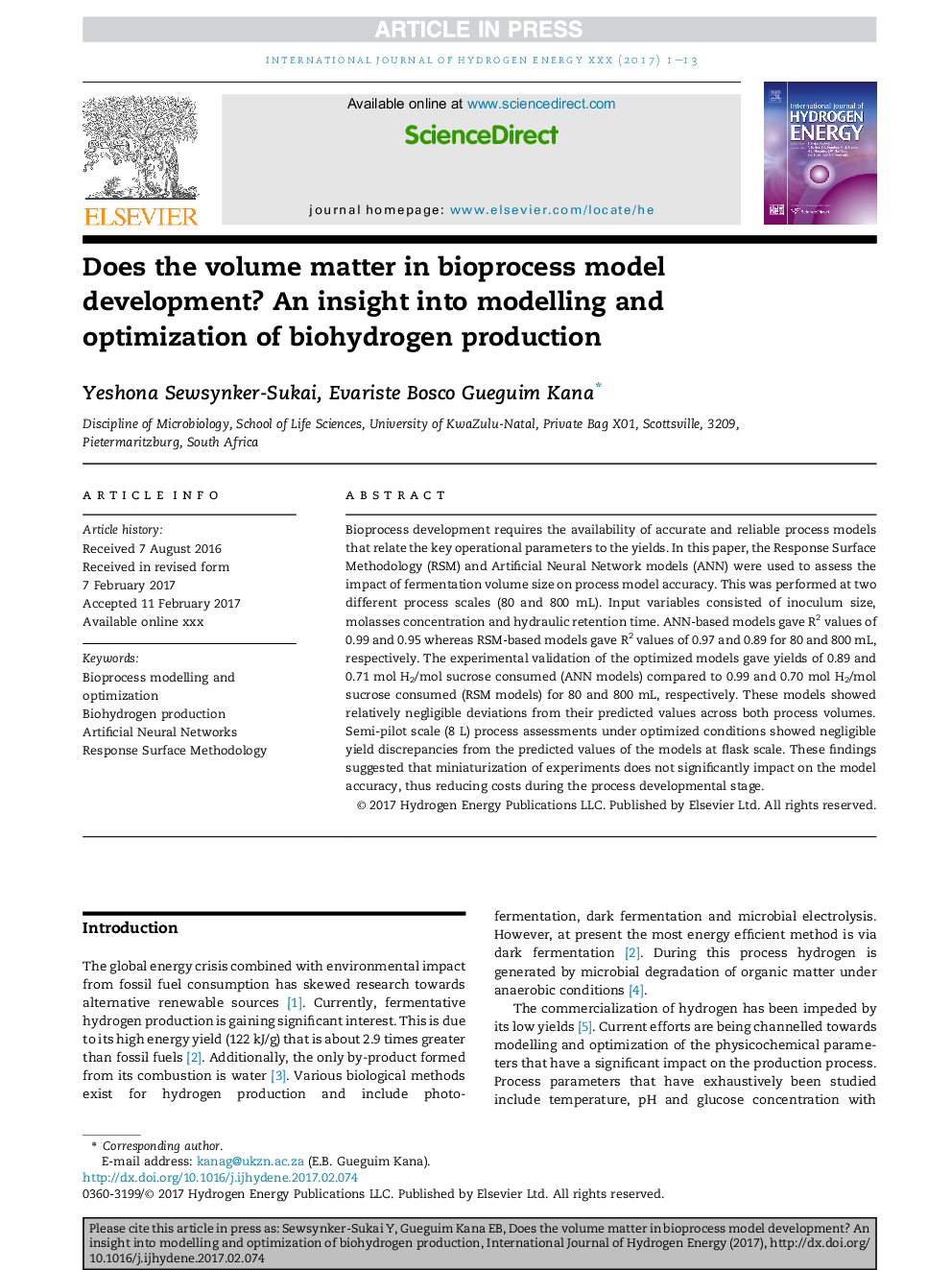| Article ID | Journal | Published Year | Pages | File Type |
|---|---|---|---|---|
| 5146785 | International Journal of Hydrogen Energy | 2017 | 13 Pages |
Abstract
Bioprocess development requires the availability of accurate and reliable process models that relate the key operational parameters to the yields. In this paper, the Response Surface Methodology (RSM) and Artificial Neural Network models (ANN) were used to assess the impact of fermentation volume size on process model accuracy. This was performed at two different process scales (80 and 800Â mL). Input variables consisted of inoculum size, molasses concentration and hydraulic retention time. ANN-based models gave R2 values of 0.99 and 0.95 whereas RSM-based models gave R2 values of 0.97 and 0.89 for 80 and 800Â mL, respectively. The experimental validation of the optimized models gave yields of 0.89 and 0.71Â mol H2/mol sucrose consumed (ANN models) compared to 0.99 and 0.70Â mol H2/mol sucrose consumed (RSM models) for 80 and 800Â mL, respectively. These models showed relatively negligible deviations from their predicted values across both process volumes. Semi-pilot scale (8Â L) process assessments under optimized conditions showed negligible yield discrepancies from the predicted values of the models at flask scale. These findings suggested that miniaturization of experiments does not significantly impact on the model accuracy, thus reducing costs during the process developmental stage.
Related Topics
Physical Sciences and Engineering
Chemistry
Electrochemistry
Authors
Yeshona Sewsynker-Sukai, Evariste Bosco Gueguim Kana,
